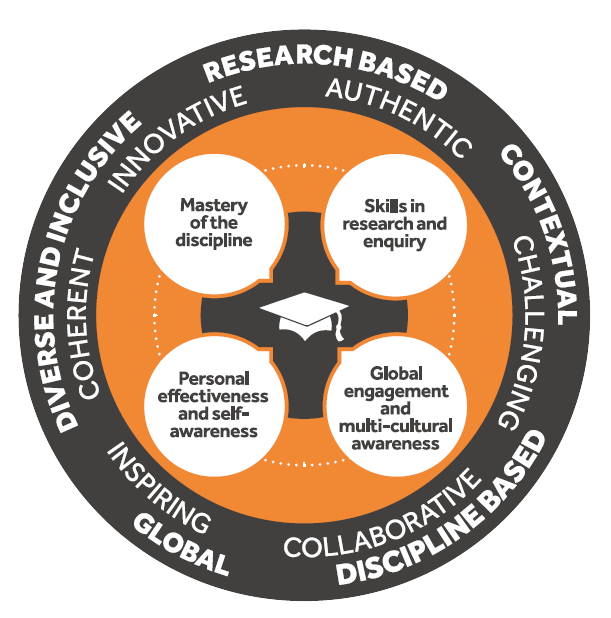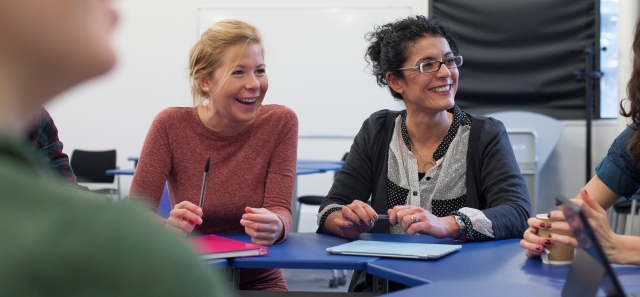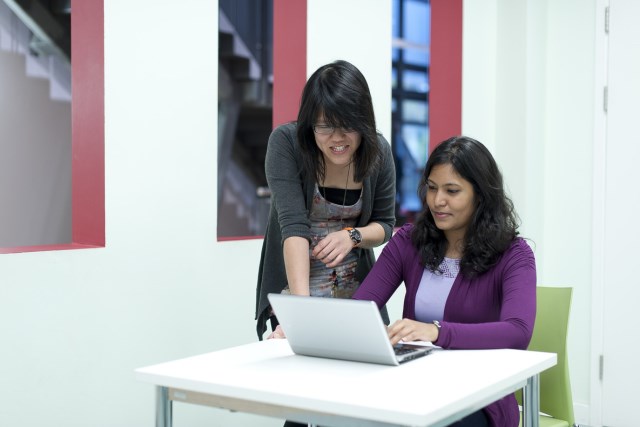Our strength
Universities are dynamic and evolving places. That applies to the content of what is taught, as much as to the way it is taught. Hence it is vital that our curriculum and its underpinning framework are kept under review if we are to fulfil one of our strategic ambitions - that our students should receive an education that prepares them for life in the 21st century.


The FLAIR (Facilitating Learning and Teaching Achievement and Individual Recognition) scheme
Teaching excellence is a key component in the quality of our programmes and the richness of the students’ experience at Reading. For this reason it is essential that our staff are valued and that their commitment and expertise is recognised within a supportive framework for professional development.
The FLAIR scheme was created to give professional teaching qualifications to staff in academic and related roles, at a level commensurate with their experience.
Not only has the FLAIR scheme enabled me to gain professional acknowledgement of my work in supporting teaching and learning within the University, but I personally found the application process to be a stimulating, intellectual challenge, and a valuable exercise in reflecting on my current practices and how I can take these forward in the future.

Assessment and Feedback
The Assessment and Feedback Project (A&F) was created to improve assessment and feedback across the University and, in turn, raise student satisfaction.



Technology Enhanced Learning (TEL)
We live in a digital age where technology is part of our everyday lives, including our education. Technology can be used in learning, teaching and assessment to create an engaging and effective learning environment and to support students’ studies.
The University is committed to digital learning and our enthusiastic and dedicated Technology Enhanced Learning (TEL) team and IT are constantly developing and promoting the use of new technologies to enhance the Reading experience.
EMA programme
The Electronic Management of Assessment (EMA) programme closed on 31 January 2020 having delivered against its three main objectives: to enable a consistently good student assessment experience; provide an improved and supported assessment experience for staff; and reduce the administrative burden of assessment for the University.
The EMA website still contains a broad range of information and will remain online for a short time, as a record of the work is undertaken. To learn more, please visit the EMA site itself.
Blackboard gets better every year. This year, the support from the TEL team is better than ever. Questions are answered promptly and helpfully. You have enabled me to do things I did not think possible! You always make useful suggestions, as well. I really appreciate what you do. Thank you.
The Learning Gain project
The University of Reading Learning Gain project is a three-year project to test and evaluate a range of methods to help in the measuring of learning gain.
Learning gain can best be described as the distance travelled by students during their studies, demonstrated by their improvement in knowledge, skills, work-readiness and personal development between two points in time.
Contact us
To find out more about teaching and learning at the University of Reading, please contact:
The Centre for Quality Support and Development (CQSD)
Email: cqsd-tandl@reading.ac.uk
Telephone: +44 (0) 118 378 7097
You can also visit the CQSD homepage for more information.

